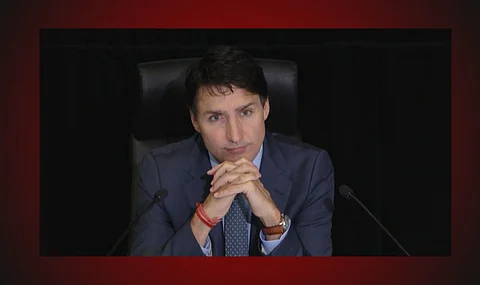

Investigative journalist Sam Cooper, of The Bureau, author of Willful Blindness, has debunked notions put forward by the Commission on Foreign Interference Tuesday.
Cooper surmised Commissioner Marie-Josée Hogue minimized the seriousness found in the National Security and Intelligence Committee of Parliamentarians (NSICOP) report released in June.
Hogue in her report reiterated multiple times the commission “found no evidence of ‘traitors’” on Parliament Hill. The NSICOP report contrarily cited multiple occasions and at least 11 parliamentarians who wittingly or semi-wittingly operated on behalf of a foreign entity.
Cooper in his analysis of the China Inquiry’s final report published Tuesday morning zeroed in on a Canadian Security Intelligence Service (CSIS) officer who through email repeatedly “expressed concern about the possibility of interference” in an application for a national security warrant.
The matter represents the overarching question “of whether Prime Minister Justin Trudeau’s government undercut an urgently needed response to foreign interference for partisan reasons,” wrote Cooper.
The officer in the warrant application said Liberal organizer and former Ontario cabinet minister Michael Chan was targetted by a foreign embassy prior to the 2021 federal election. Two months passed before the warrant was granted — a 54-day delay that came with no explanation.
The “unprecedented” delay, as described by lawyers during the commission, at the hands of then-Public Safety Minister Bill Blair’s office, and namely chief-of-staff Zita Astravas, prompted thorough examination as to why it was no prompt approved though it clearly suggested an imminent threat to national security.
“In internal CSIS email exchanges between Days 13 and 48, the warrant affiant expressed concern about the possibility of interference in the warrant process,” states the final report.
“Similar concerns were voiced by participants in the commission’s public hearings. Those concerns are legitimate and understandable given the unusual delay. Furthermore, interference in a warrant application would be very serious.”
Hogue did not attribute the unheard of delay to Liberal party interference but instead to poor communication within the party.
A lengthy delay such as the experience with Blair’s office could “risk compromising a CSIS investigation by materially delaying the start of surveillance,” wrote Hogue.
“This could give rise to questions about the integrity of the process, which, if substantiated, would be a serious concern.”
Further, Hogue’s final report cited CSIS intelligence from the 2019 election of “at least two transfers of funds approximating $250,000 from PRC [People’s Republic of China] officials in Canada, possibly for foreign interference-related purposes.”
The hefty sums of money were transferred into a “clandestine network” that included 11 candidates, including seven from the Liberal Party and four from the Conservative Party, as Cooper explicitly mentioned in his analysis.
“Some of these individuals appeared willing to cooperate in foreign interference-related activity while others appeared to be unaware of such activity due to its clandestine nature,” Hogue wrote.
Cooper noted Hogue’s review of the NSICOP report “aligned more closely with views from senior Trudeau administration officials that testified there actually was no evidence of traitorous activity in Parliament.”
Though Hogue said there were “legitimate concerns about parliamentarians potentially having problematic relationships with foreign officials, exercising poor judgment, behaving naively and perhaps displaying questionable ethics,” she “did not see evidence of parliamentarians conspiring with foreign states against Canada.”
“While some conduct may be concerning, I did not see evidence of ‘traitors’ in parliament.”
In fact, Hogue touted the Liberal government for the “measures put in place over the past two years” to counter foreign meddling.
“The evidence I heard on the subject suggest that government is now making the fight against foreign interference a high priority,” wrote Hogue.
The commissioner both in her report and during the press conference where she highlighted key elements said foreign interference in an age-old practice, but its “means” have advanced — particularly through information wars.
Hogue condemned “disinformation” spread by bad actors, and recommended the government improve its methods to “better inform the public and be more transparent.”
Hogue immediately after delivering her remarks said he would not be taking questions, and abruptly turned and walked away from the podium.
